Donald Trump lawyers argue Democrats just want to overturn election
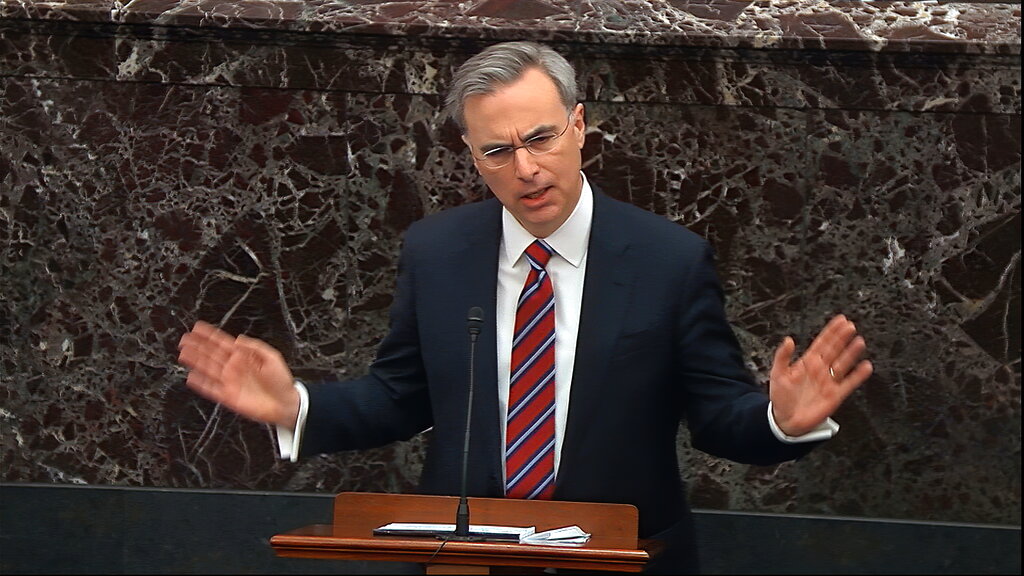
Donald Trump’s defense team took center stage following three days of methodical and passionate arguments from Democrats.
Democrats unveil Donald Trump impeachment charges
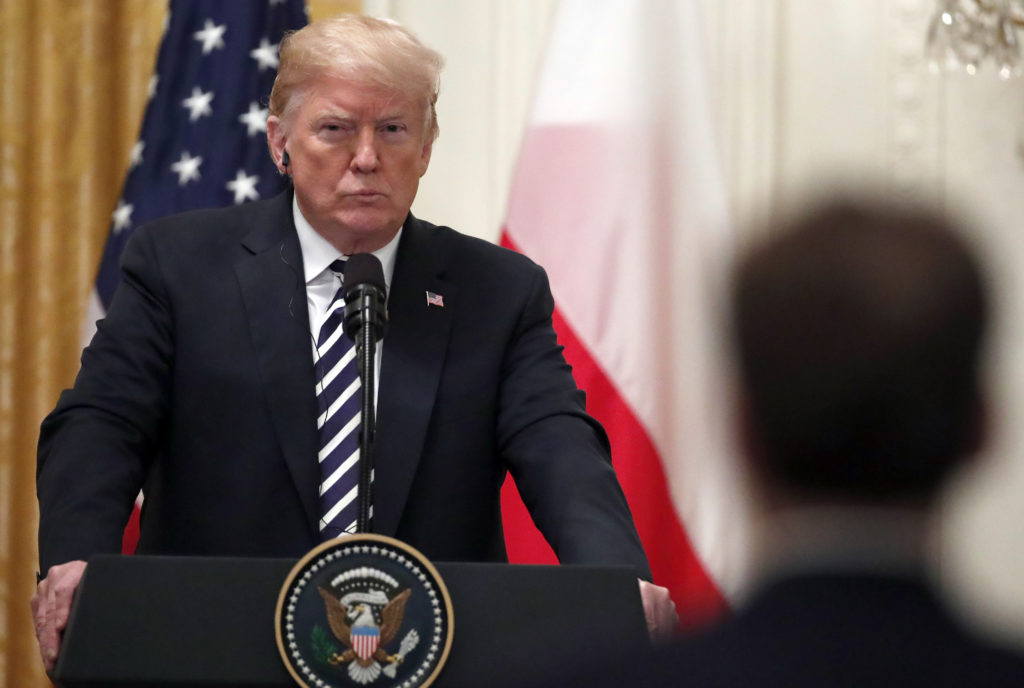
House Democrats announced two articles of impeachment Tuesday against President Donald Trump, declaring he “betrayed the nation” in his actions toward Ukraine as they pushed toward historic proceedings that are certain to help define his presidency and shape the 2020 election. The specific charges aimed at removing the 45th president of the U.S.: abuse of power and obstruction of Congress. Speaker Nancy Pelosi, flanked by the chairmen of the impeachment inquiry committees, said somberly at the U.S. Capitol that they were upholding their solemn oath to defend the Constitution. Trump responded angrily on Twitter: “WITCH HUNT!” Voting is expected in a matter of days by the Judiciary Committee, and by Christmas in the full House. The charges, if approved, would then be sent to the Senate. The Republican majority in the Senate would be unlikely to convict Trump. But first there would be a trial filled with bitter accusations and recriminations just as voters in Iowa and other early presidential primary states begin making their choices. In the formal articles announced Tuesday, the Democrats said Trump enlisted a foreign power in “corrupting” the U.S. election process and endangered national security by asking Ukraine to investigate his political rivals, including Democrat Joe Biden, while withholding U.S. military aid as leverage. That benefited Russia over the U.S. as America’s ally fought Russian aggression, the Democrats said. Trump then obstructed Congress by ordering current and former officials to defy House subpoenas for testimony — some testified anyway — and by blocking access to documents, the charges say. By his conduct, Trump “demonstrated he will remain a threat to national security and the Constitution if allowed to remain in office, ” the nine-page impeachment resolution says. After decrying the Democrats’ announcement, Trump headed to Pennsylvania for a reelection campaign rally. First, he tweeted, “To Impeach a President who has proven through results, including producing perhaps the strongest economy in our country’s history, to have one of the most successful presidencies ever, and most importantly, who has done NOTHING wrong, is sheer Political Madness,.” The outcome, though, appears increasingly set as the House presses ahead toward impeachment as it has only three times in history against U.S. presidents. In outlining the charges, Democrats said they had no choice but to act because Trump has shown a pattern of behavior that, if left unchecked, poses risks to the democratic process ahead of the 2020 election. “Our president holds the ultimate public trust. When he betrays that trust and puts himself before country, he endangers the Constitution; he endangers our democracy; he endangers our national security,” said Rep. Jerrold Nadler, Democrat-New York, the Judiciary chairman, announcing the charges before a portrait of George Washington. “Our next election is at risk. … That is why we must act now.” Nadler said, “No one, not even the president, is above the law.” Chairman Adam Schiff of the Intelligence Committee said, “We stand here today because the president’s abuse of power leaves us with no choice.” Trump’s allies immediately plunged into the fight that will extend into the new year. White House Press Secretary Stephanie Grisham said Democrats are trying to “overthrow” the administration. Campaign manager Brad Parscale said Democrats are “putting on this political theater because they don’t have a viable candidate for 2020 and they know it.” The president’s son, Eric, embraced his father’s penchant for name calling, assailing Pelosi and “her swamp creatures.” In drafting the articles of impeachment, Pelosi faced a legal and political challenge of balancing the views of her majority while hitting the Constitution’s bar of “treason, bribery or other high crimes and misdemeanors.” Some liberal lawmakers wanted more expansive charges encompassing the findings from special counsel Robert Mueller’s probe of Russian interference in the 2016 election. Centrist Democrats preferred to keep the impeachment articles more focused on Trump’s actions toward Ukraine. The final resolution attempted to find common ground by linking the findings in the Ukraine inquiry to the Mueller probe in two lines, without specifically mention the Russia investigation. It said the abuse of power was consistent with “previous invitations of foreign interference in United States elections” while the obstruction charge was consistent with Trump’s previous efforts to undermine “United States government investigations into foreign interference.” As the House chairmen arrived at a closed-door meeting of the chamber’s Democrats after the announcement, they were greeted with applause. Democratic leaders say Trump put his political interests above those of the nation when he asked Ukraine President Volodymyr Zelenskiy in a July phone call to investigate his rivals, including Democrat Joe Biden, and then withheld $400 million in military aid as the U.S. ally faced an aggressive Russia. They say he then obstructed Congress by stonewalling the House investigation. The articles say Trump “used the powers of the presidency in a manner that compromised the national security of the United States and undermined the integrity of the United States democratic process.” The first article, on abuse of power, says Trump “corruptly” solicited Ukraine to investigate his political rivals and required the investigations if the country expected the release of military aide that Congress had already approved as well as a White House meeting with Zelenskiy. The second article, obstruction of Congress, says that Trump has “directed the unprecedented, categorical and indiscriminate defiance of subpoenas” issued by the House, and that such behavior was “offensive to, and subversive of” the Constitution. “In the history of the republic, no president has ever ordered the complete defiance of an impeachment inquiry or sought to obstruct and impede so comprehensively the ability of the House of Representatives to investigate ‘high crimes and misdemeanors,’” the second article reads. Trump insisted in a new tweet that when he asked Ukraine’s president “to do us a favor” with the investigations, “’us’ is a reference to USA, not me!” Democrats, however, say Trump’s meaning could not have been clearer in seeking political dirt on Biden, his possible opponent in the 2020 election. When asked Monday night if she had enough votes to impeach the Republican president, Pelosi said House member
What’s next in impeachment: Judiciary Committee up next?
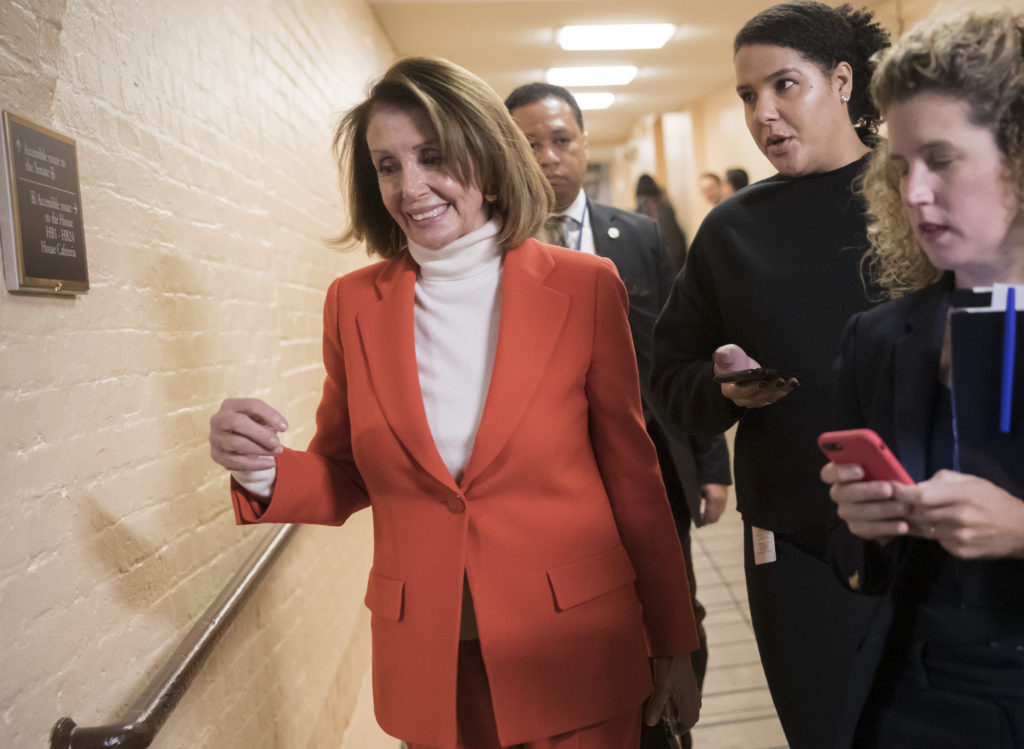
After two weeks of public hearings, Democrats could soon turn the impeachment process over to the House Judiciary Committee. They’re moving “expeditiously” ahead as House Speaker Nancy Pelosi has instructed. In the coming weeks, the House intelligence panel will submit a report to the Judiciary panel, and then Democrats will consider drafting articles of impeachment on President Donald Trump’s dealings with Ukraine and the administration’s attempts to block the investigation. The articles could cover matters beyond Trump’s efforts to push Ukraine to investigate Democrats, including special counsel Robert Mueller’s investigation, but no decisions have been made. There could be several steps along the way, including a Judiciary committee vote, a House floor vote and, finally, a Senate trial. What’s next in impeachment: INTELLIGENCE COMMITTEE WRAPS UP Democrats on the House intelligence committee believe they have enough evidence to write a report and move forward. But it’s still unclear whether they will hear any last-minute testimony. Democratic House Intelligence Committee Chairman Adam Schiff said Sunday he won’t foreclose the possibility of his committee undertaking more depositions and hearings in the impeachment inquiry of Trump. Schiff said on CNN’s “State of the Union” that his committee continues to conduct investigative work, but he won’t let the Trump administration stall the inquiry. Schiff’s staff and others are compiling the panel’s findings to submit to the House Judiciary Committee, which is expected to open its own hearings to consider articles of impeachment and a formal recommendation of charges. He said his committee may need to file addendums to its report so that the Judiciary Committee can move ahead. “The investigation isn’t going to end,” Schiff said. Several potentially key witnesses — former national security adviser John Bolton, acting White House chief of staff Mick Mulvaney, Energy Secretary Rick Perry and Secretary of State Mike Pompeo, among others — have declined to provide testimony or documents on Trump’s orders. Democrats have said they don’t want to get tied up in lengthy court battles to force those witnesses to cooperate with subpoenas. But they could still hear testimony if one of them changed their mind, or if other key witnesses emerged. “We’ve heard and seen compelling evidence that the president committed serious wrongdoing,” says Texas Rep. Joaquin Castro, a member of the intelligence panel. “There are other witnesses, including some principal witnesses that we would have liked to have heard from, but the evidence has been pretty damning that the president committed an impeachable act.” Time is running short if the House is to vote on impeachment by Christmas, which Democrats privately say is the goal. The intelligence panel is expected to spend the Thanksgiving week writing, and maybe even completing, a report of evidence gathered through more than six weeks of closed-door depositions and public hearings. Once the report is done, the panel could vote to pass it on to the House Judiciary Committee. That could happen as soon as the first week of December, when lawmakers return from the Thanksgiving break. JUDICIARY TAKES CHARGE Pelosi has instructed the intelligence panel, along with other committees that have investigated Trump, to submit evidence to the House Judiciary Committee. That panel is then expected to hold hearings and vote on articles of impeachment — a process that could take up the first two weeks of December. The articles of impeachment are expected to mostly focus on Ukraine, though discussions continue. Democrats are considering an overall “abuse of power” article against Trump, which could be broken into categories like bribery or extortion. The article would center on the Democrats’ assertion, based on witness testimony, that Trump used his office to pressure Ukraine into politically motivated investigations. Additional articles of impeachment could include obstruction of Congress and obstruction of justice. The latter could incorporate evidence from Mueller’s report. HOUSE FLOOR VOTE The Judiciary panel could take several days to debate the articles and then vote on them — sending impeachment to the House floor, where they could immediately be called up for consideration. Debate on impeachment would be handled similarly to any other bill or resolution. If articles of impeachment reach the House floor, Democrats will be looking to peel off Republicans to make the vote bipartisan. So far, however, it appears few, if any, Republicans will break ranks. Not a single Republican backed the resolution launching the impeachment hearings. Once an impeachment vote is done, Democrats would appoint impeachment managers for a Senate trial. SENATE TRIAL House Democrats are hoping to be finished with an impeachment vote by Christmas, sending articles to the Republican-controlled Senate for a trial in 2020. Unless political dynamics change, Trump is expected to have the backing of majority Republicans in that chamber to be acquitted. It’s still unclear how long a trial would last, what it would look like or what witnesses might be called. Top White House officials met Thursday with Republican senators to discuss strategy but made no decisions about the length of a trial or other tactics, two people familiar with the session said. Participants in the meeting expressed more interest in voting as soon as they have the 51 votes needed to acquit Trump than in setting a specific timetable for the proceedings, according to one Senate GOP aide. That aide and a senior White House official said a trial lasting two weeks was discussed, but not agreed to. The aides spoke on condition of anonymity to describe a private meeting. By Mary Clare Jalonick Associated Press. Associated Press writer Alan Fram contributed to this report. Republished with the permission of the Associated Press.
As Jeff Sessions considers campaign, rivals emphasize Donald Trump feud
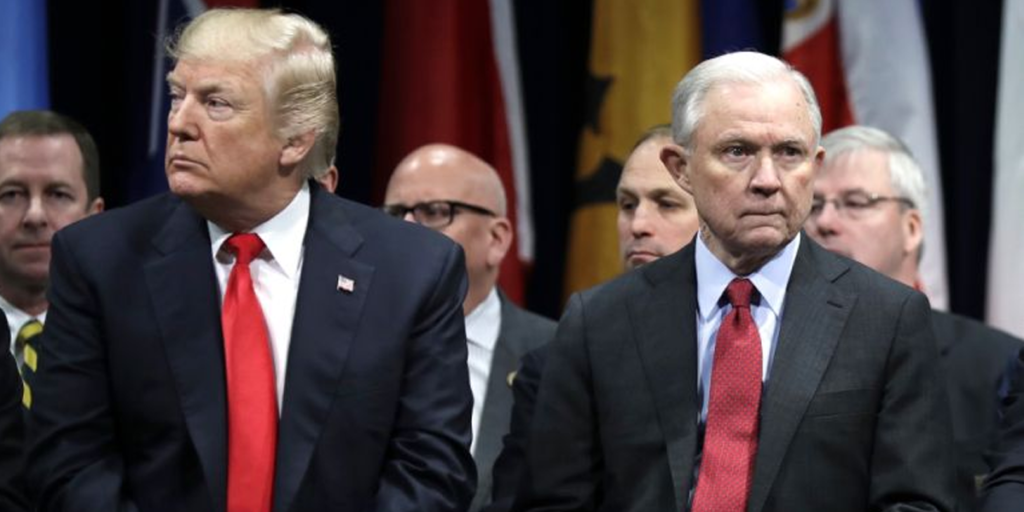
As Jeff Sessions explores a campaign to reclaim the Senate seat he held for 20 years, he’s finding much has changed since he left — namely, President Donald Trump.His potential Republican primary rivals said Tuesday that they would not clear the field for the former senator and signaled they were ready to use his tumultuous tenure as Trump’s attorney general against him. Trump has called Sessions “the biggest mistake” of his presidency and some candidates for the Senate seat have suggested they would not let voters forget it. Former Auburn University football coach Tommy Tuberville said in a statement that Sessions “had a chance to stand and defend the President and he failed.” “If the voters of Alabama want a career politician as their next U.S. Senator, then they have plenty of choices. If they want a political outsider who will stand with President Trump and fight the DC establishment when it matters the most, then I am the only choice,” Tuberville said. The Associated Press reported Monday that multiple Republican sources say Sessions is making calls exploring a possible run for his former Senate seat. The three Republicans spoke on condition of anonymity so they could speak more freely about closely held conversations. Sessions represented Alabama in the U.S. Senate from 1997 to 2017 and left the Senate to become Trump’s first attorney general. He was later ousted after enduring repeated public mocking from Trump for recusing himself from special counsel Robert Mueller‘s Russia investigation. In a state where the president is largely beloved, the bitter breakup between Sessions and the president could be a liability. U.S. Rep. Bradley Byrne told the AP that he will “absolutely” stay in the race if Sessions becomes a candidate. “The president does not want him to be the U.S. senator for Alabama. I know,” Byrne said. Asked if he has talked to Trump about this, Byrne replied: “I know. And I don’t think a state like Alabama that’s so pro-President Trump is going to react favorably to someone who’s running as the president’s opposition.” Byrne said he spoke to Sessions last week for less than 10 minutes but declined to disclose the subject of the private conversation. Former Alabama Chief Justice Roy Moore, who lost the 2017 special election to Sen. Doug Jones, said he will stay in the 2020 race regardless of what Sessions decides. Despite the criticism from Trump, Sessions has continued to praise the president. In a speech earlier this month at a Republican Party fundraiser in Huntsville, Sessions reiterated his support for Trump even as he joked about life after being “fired” from a job. Sessions praised Trump’s effort on trade, immigration and foreign policy. “That’s why I supported him and why I still do support him,” Sessions told the crowd of about 500. “He is relentlessly and actually honoring the promises he made to the American people.” Sessions has $2.4 million in a campaign account, according to campaign finance records. Byrne, the best-financed Republican in the race, has about $2.5 million cash on hand.Sessions, who was state attorney general before being elected to the Senate, also has more than two decades of support from Alabama voters. “I suspect Sessions would become an immediate front-runner if he were to enter the race,” said David Hughes, a political scientist at Auburn University in Montgomery.“We know from past experience in the 2017 U.S. Senate special primary that Republican voters are willing to buck the president’s preferences. And Sessions has done little to distance himself from Trump. I have no a priori reason to believe state Republicans have turned on Sessions,” Hughes said. Republished with permission from the Associated Press.
House democrats, Corey Lewandowski spar at 1st impeachment hearing
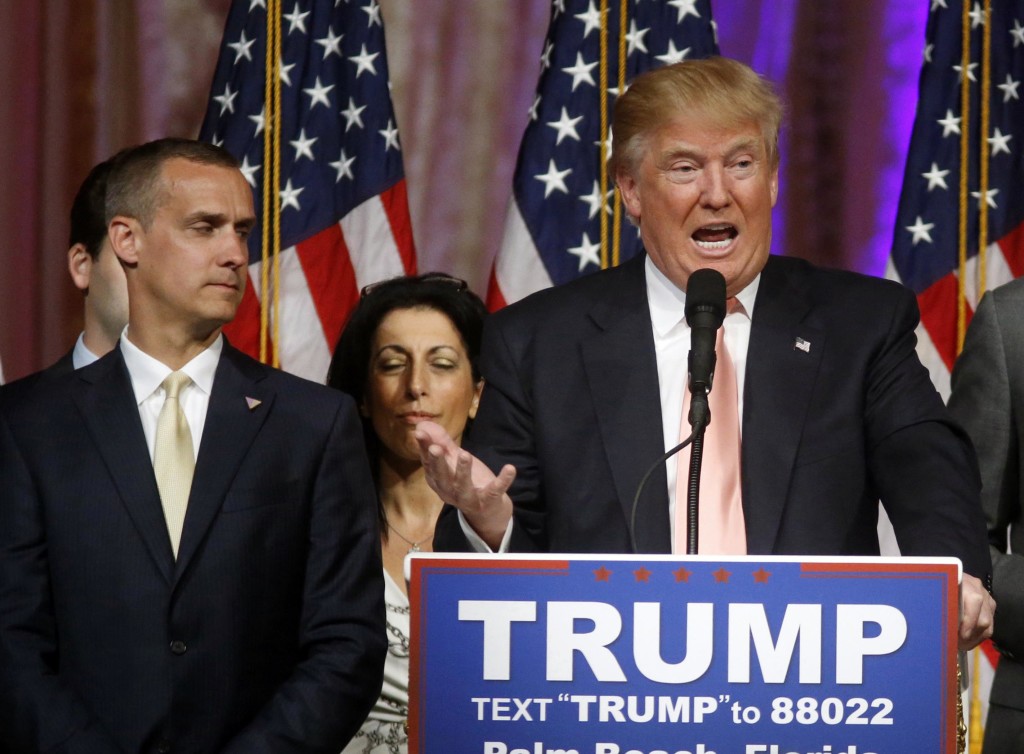
The first impeachment hearing held by House Democrats quickly turned hostile as their sole witness, former Trump campaign manager Corey Lewandowski, stonewalled many of their questions and declared they were “focusing on petty and personal politics.” Lewandowski, a devoted friend and supporter of President Donald Trump, followed White House orders not to discuss conversations with the Republican president beyond what was already public in the report by former special counsel Robert Mueller. Trump cheered Lewandowski along as he testified on Tuesday, tweeting that his opening statement was “beautiful.” The hearing underscores what has been a central dilemma for the House Judiciary Committee all year as they investigate — and potentially try to impeach — Trump. Many of the Democrats’ base supporters want them to move quickly to try to remove Trump from office. But the White House has blocked their oversight requests at almost every turn, declining to provide new documents or allow aides and associates to testify. On Tuesday, Lewandowski, who is considering a run for U.S. Senate in New Hampshire, defiantly made clear he wouldn’t make life easy for the Democrats. He demanded that they provide him a copy of the Mueller report, sending Democratic staff scrambling to find one. He read directly from the report and asked Democrats to read passages to him, showing that he wouldn’t say much beyond what Mueller wrote. Republicans on the panel forced a series of procedural votes, immediately sending the hearing into disarray. “He’s filibustering,” said a frustrated House Judiciary Committee Chairman Jerrold Nadler. Lewandowski eventually began to answer some questions — he told the committee that he doesn’t think Trump “asked me to do anything illegal” — but still stuck mostly to what was already in the report, giving Democrats little new information to go on. And he made clear his dislike for the House majority in the opening statement, calling them petty and asserting that investigations of the president were conducted by “Trump haters.” Lewandowski was a central figure in Mueller’s report, which the committee is examining as part of its impeachment probe. The report, which said Trump could not be exonerated on obstruction of justice, detailed two episodes in which Trump asked Lewandowski to direct then-Attorney General Jeff Sessions to limit Mueller’s investigation. Trump said that if Sessions would not meet with Lewandowski, then Lewandowski should tell Sessions he was fired. Lewandowski never delivered the message but asked White House aide Rick Dearborn, a former Sessions aide, to do it. Dearborn said he was uncomfortable with the request and declined to deliver it, according to the report. Under questioning by Rep. Hank Johnson, Democrat-Georgia, Lewandowski confirmed as “accurate” that Trump had asked him to deliver the message. At least two Democrats asked if he “chickened out.” Lewandowski said no, that he took his kids to the beach instead. And under questioning from a lawyer for the Democrats, Barry Berke, Lewandowski acknowledged that he had possibly lied in a cable interview about his interactions with Trump when he said he didn’t remember the president asking him to get involved with Sessions. New rules approved by the committee last week for impeachment hearings allow staff questioning at the end of the hearing. Democrats say the televised hearings are to educate the American people on the Mueller report and what they say is egregious behavior by the president. They argue that the blockade from the White House and stonewalling from witnesses like Lewandowski just gives them more fodder for lawsuits they have filed against the administration — and possible articles of impeachment on obstruction. “You are also proving our point for the American people to see,” Nadler said, noting that one of the articles of impeachment drafted against President Richard Nixon involved obstruction. He said Lewandowski’s behavior is “completely unacceptable.” Two other witnesses who were subpoenaed alongside Lewandowski, Dearborn and former White House aide Rob Porter, did not show up at all, on orders from the White House. The White House says the former aides are “absolutely immune” from testifying — a principle that Democrats are currently challenging in court. The committee’s impeachment investigation faces major hurdles, and it’s still unclear whether the panel will ever draft articles of impeachment or hold any impeachment votes. The Republican Senate is certain to rebuff any House efforts to bring charges against the president. Moderate Democrats have expressed nervousness that the impeachment push could crowd out their other accomplishments. And House Speaker Nancy Pelosi has said the public sentiment isn’t yet there. Still, the Judiciary panel is moving ahead, last week approving the rules, including the staff questioning, for what Nadler said will be an “aggressive series” of impeachment hearings this fall. Republicans declined to use their 30 minutes of staff questioning, arguing that the hearings aren’t really impeachment because the House never voted to begin an inquiry. Tuesday’s hearing featured both combative exchanges between Lewandowski and Democrats and friendly questions from the Republican side of the dais. The witness took personal shots at some Democrats — calling California Rep. Eric Swalwell, who dropped out of the Democratic presidential primary, “President Swalwell,” for example. The Democrats taunted Lewandowsi as well, with members occasionally reminding him that he was “not yet” a senator. Republicans focused their ire on Nadler and the Democrats. “They are going to bring back anybody, as much as they have to, to find something, anything to keep impeachment hopes alive,” Rep. John Ratcliffe, Republican-Texas, told Lewandowski during his round of questioning. Lewandowski’s political future wound throughout the proceedings, which offered him a widely televised platform from which to defend Trump and publicly introduce himself on the congressional political stage. A poll last week showed Lewandowski would win the GOP nomination for Senate in New Hampshire. Trump has offered his support for any bid from the right to challenge Democrat Jeanne Shaheen. For his part, Lewandowski on Tuesday did nothing to bat down cracks from Democrats about his ambitions. And during a break in the hearing, he tweeted a link to
Congress’ fight over election security bills explained by AP
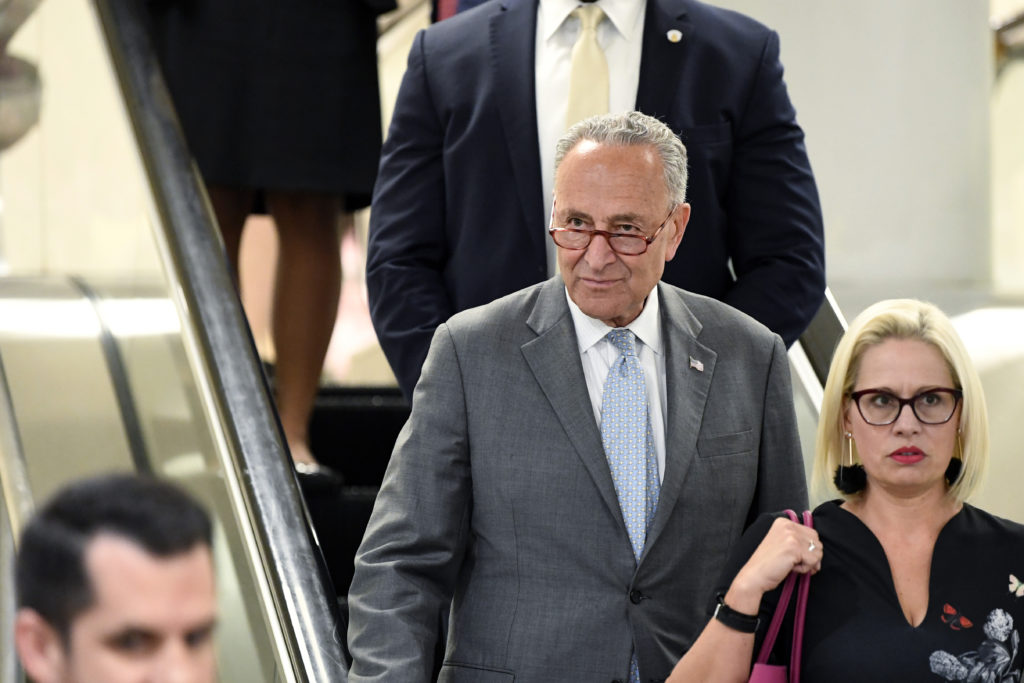
While House Democrats are haggling over whether to consider impeachment of President Donald Trump, Senate Democrats are focusing on a different angle in former special counsel Robert Mueller’s report — securing future elections from foreign interference. Democrats have tried to pass several election security bills in recent weeks only to have them blocked by Republicans, who say they are partisan or unnecessary. The federal government has stepped up its efforts to secure elections since Russians intervened in the 2016 presidential election, but Democrats say much more is needed, given ongoing threats from Russia and other countries. Senate Majority Leader Mitch McConnell has seethed in response to criticism over the issue, including some Democrats’ new moniker for him: “Moscow Mitch.” In an angry floor speech on Monday, he noted that Congress has already passed some bills on the subject, including ones that give money to the states to try to fix security problems. McConnell also left the door open to additional action, saying “I’m sure all of us will be open to discussing further steps.” Senate Minority Leader Chuck Schumer predicted that Democrats’ “relentless pushing” will work. “We’re forcing his hand,” Schumer said. The top Democrat on the Senate intelligence committee, Virginia Sen. Mark Warner, said Thursday that he’s “much more optimistic than even 10 days ago” that the Senate will ultimately pass something on election security. Warner said he believes that in his home state, at least, the issue “has broken through” with voters more than other aspects of Mueller’s probe. But action will have to wait until at least September, with senators having scattered from Washington for the summer recess. A look at various election security bills in the Senate: REPORT FOREIGN INTERFERENCE Legislation introduced by Warner would require campaigns to report to federal authorities if they have any contacts with foreign officials who are attempting to interfere in a presidential election. Mueller’s report, issued in April, details a meeting between a Russian lawyer and members of the Trump campaign before which dirt on Democrat Hillary Clinton had been promised. There’s no evidence that such material was provided at the meeting, and Mueller concluded that he wasn’t able to establish a conspiracy between Trump’s campaign and Russia. But Democrats say more safeguards are needed to ensure future campaigns don’t receive foreign help. Republicans blocked Warner’s bill on the floor last month, but at least one in their ranks has signed on — Maine Sen. Susan Collins, a key swing vote on the intelligence panel.“Russia’s efforts to interfere in our elections remain relentless,” Collins tweeted July 30. “I’m proud to join Sen. @MarkWarner in cosponsoring the bipartisan FIRE Act to require presidential candidates to immediately call the FBI if they are contacted by a foreign power attempting to target our elections.” Democratic Sen. Richard Blumenthal of Connecticut has a similar bill that has also been blocked by Republicans. SECURE STATE ELECTION SYSTEMS Minnesota Sen. Amy Klobuchar, a Democratic candidate for president, has introduced legislation to require states to use paper ballots, which would make election systems less vulnerable to hacking. It would also provide additional grants for states to make improvements, among other measures. Homeland Security officials notified election officials in 21 states in 2017 that their systems had been targeted by Russia. Authorities have since said they believe all states were targeted to varying degrees. The federal government has ramped up its efforts to help states prevent such intrusions, and both sides say the relationship has greatly improved.Republicans blocked passage of Klobuchar’s bill on the Senate floor in June. GOP critics of the bill say they fear creating too many new federal rules for states when they are already working with the government to make improvements. Some Republicans supported similar legislation in the last Congress, including Oklahoma Sen. James Lankford and Missouri Sen. Roy Blunt. Lankford has said he’s still working with Klobuchar’s office on details of the legislation, but Blunt says he doesn’t think it’s needed, for now. The House passed similar legislation to help states, but Republicans blocked that on the Senate floor as well. SENATE CYBERSECURITY Democratic Sen. Ron Wyden of Oregon and Republican Sen. Tom Cotton of Arkansas have sponsored a bill to protect personal electronic devices and accounts of senators and Senate staff from cyber threats. It would allow Senate officials to provide voluntary assistance to the senators. That bipartisan legislation, which was also blocked on the Senate floor last month, came after former Sen. Claire McCaskill, Democrat-Missouri, said last year that Russian hackers had tried unsuccessfully to infiltrate her Senate computer network in 2017. The senators said they proposed the legislation after Senate officials said they couldn’t use public funds to protect non-government devices and accounts. RUSSIAN SANCTIONS Another bipartisan election security measure from Sens. Marco Rubio, Republican-Florida, and Chris Van Hollen, Democrat-Maryland, would slap new sanctions on Russia if it tries to interfere in U.S. elections. Rubio and Van Hollen pushed the legislation last session and reintroduced it this year, but it hasn’t yet moved. McConnell hasn’t signaled opposition to the bill, but some lawmakers in the House and Senate have raised concerns it casts too wide a net and could cause problems for allied nations that do business with Russia. MORE REGULATION OF ONLINE CAMPAIGN ADS Legislation first introduced in 2017 by Warner and Klobuchar would extend some political ad rules that now apply to TV, radio and print to the internet. That bill has bipartisan support as well, with Senate Judiciary Committee Chairman Lindsey Graham as a cosponsor. The senators wrote the legislation in response to Russia’s broad social media disinformation campaign on Facebook and other sites. It would require social media companies to keep public files on election ads and meet some of the same disclaimer requirements as political broadcast and print advertising. The social media companies say they have started to take those steps voluntarily, but the bill’s supporters say they should be required by law. MAKING IT A CRIME FOR FOREIGN NATIONS TO INTERFERE In arguing
House republicans vow tough questions for Robert Mueller at hearing
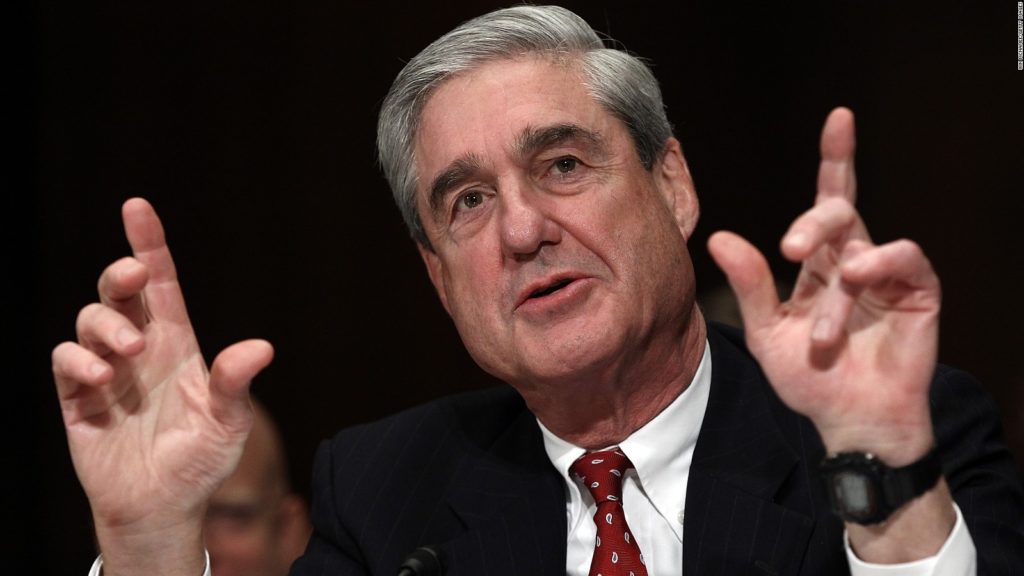
House Republicans are pledging tough questioning of special counsel Robert Mueller when he testifies before Congress this week as Democrats plan to air evidence of wrongdoing by President Donald Trump in a potentially last-ditch bid to impeach him. Rep. Doug Collins, the top Republican on House Judiciary Committee, said the American public is growing weary of the Russia investigation three months after the release of the special counsel’s 448-page report and that “any thought of impeachment is waning.” He said Republicans will be focused on making clear that the report represents a “final episode” in the Russia probe, which he described as flawed. “Remember, the Mueller report is a one-sided report,” Collins said. “It has not been questioned from the other side. This is our chance to do that.” Days before back-to-back hearings Wednesday, both sides seemed to agree that Mueller’s testimony could be pivotal in shifting public opinion on the question of “holding the president accountable.” “This is a president who has violated the law 6 ways from Sunday,” said New York Rep. Jerrold Nadler, chairman of the Judiciary Committee. He argued that Mueller’s report lays out “very substantial evidence” that Trump is guilty of “high crimes and misdemeanors,” the constitutional standard for impeachment. “We have to present — or let Mueller present — those facts to the American people … because the administration must be held accountable and no president can be above the law,” Nadler said. The House Judiciary Committee and the House Intelligence Committee will question Mueller in separate hearings on the report. While the report did not find sufficient evidence to establish charges of criminal conspiracy between the Trump campaign and Russia to swing the election, it said Trump could not be cleared of trying to obstruct the investigation . But Mueller believed Trump couldn’t be indicted in part because of a Justice Department opinion against prosecuting a sitting president. Mueller has said he doesn’t intend to speak beyond the findings of the report in congressional hearings. Still, Democrats on the Judiciary Committee plan to focus on a narrow set of episodes laid out in the report to direct Americans’ attention to what they see as the most egregious examples of Trump’s conduct, which point to obstruction of justice. The examples include Trump’s directions to then-White House counsel Donald McGahn to have Mueller removed and, later, orders from Trump to McGahn to deny that happened. Democrats also will focus questioning on a series of meetings Trump had with former campaign manager Corey Lewandowski in which the Republican president directed Lewandowski to persuade then-Attorney General Jeff Sessions to limit Mueller’s investigation. Collins, meanwhile, said Republicans will focus in part on the origins of the Russia investigation, which Trump has long derided as a political “witch hunt” as well as evidence they see of potential bias in the FBI’s handling of the probe. “There’s going to be a lot of questions for what he did say, what he didn’t say, and how this thing started,” he said, referring to Mueller. “This is the time that the Democrats have got to show on their end how much time they have been wasting of our committee and how we have not been getting things done because they simply don’t like this president, who was elected by the people in 2016, and they’re just trying to derail him for 2020.” Mueller’s appearance comes more than two years since the start of the Russia investigation, an extraordinary moment in Trump’s presidency when, after Trump had fired FBI Director James Comey, his Justice Department appointed Mueller to take over the inquiry into election interference and the potential role that Trump and his winning 2016 campaign may have played. While Mueller’s testimony was once envisioned as a crystalizing event, a Watergate-style moment to uncover truths, public attention has drifted in the months since the report was released. “We want Bob Mueller to bring it to life, to talk about what’s in that report,” said Rep. Adam Schiff, Democrat-California, Chairman of the House Intelligence Committee. “It’s a pretty damning set of facts that involve a presidential campaign in a close race welcoming help from a hostile foreign power, not reporting it but eagerly embracing it, building it into their campaign strategy, lying about it to cover up, then obstructing an investigation into foreign interference again to try to cover up.” Intelligence committee aides have said they believe the public has received a slanted view of what Mueller found on the question of criminal conspiracy because of Trump’s repeated claims of “no collusion,” and because the details of Russia’s interference in the election — and the outreach to the Trump campaign — haven’t gotten enough attention. “Who better to bring them to life than the man who did the investigation himself?” Schiff asked. Nadler said he’s not worried that Republicans might seek to attack the credibility of the Russia investigation and says he hopes to take cues from the public after the hearing about “where we go from here.” “We hope it won’t end up being a dud,” he said. Nadler spoke on “Fox News Sunday,” Schiff appeared on CBS’ “Face the Nation” and Collins was on Fox News Channel’s “Sunday Morning Futures.” By Hope Yen Associated Press Associated Press writer Mary Clare Jalonick contributed to this report. Republished with permission of the Associated Press.
‘It will not be easy’: Dems prepare for their Robert Mueller moment
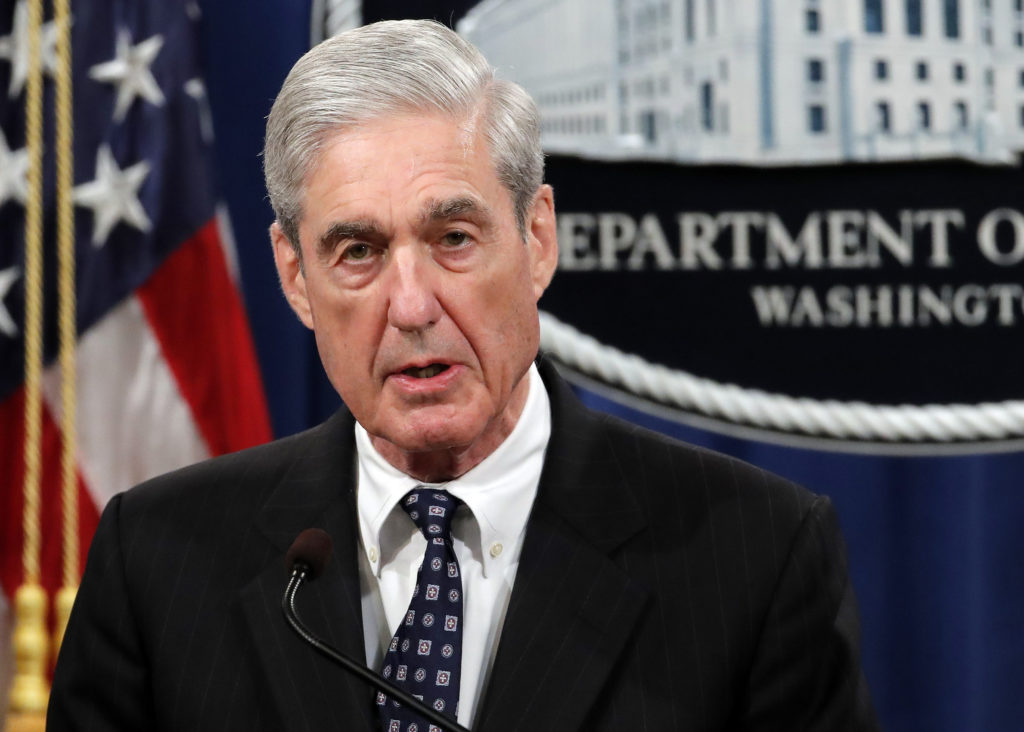
Some are watching old video of his previous testimony. Others are closely re-reading his 448-page report. And almost all are worrying about how they’ll make the most of the short time they’ll have for questioning.Robert Mueller, the Democrats know, will be tough to crack. The stern, reticent former FBI director has said he won’t answer questions beyond what is in the report on Russia’s election meddling and the Trump campaign and possible obstruction of justice when he comes to Congress on July 17. Mueller is expected to testify in front of the Judiciary and intelligence committees for two hours each, with time split evenly between Republicans and Democrats, though that timing is still a subject of negotiations. That means Democrats will have to be efficient and targeted in their attempts to extract information from the former special counsel and spotlight what they say are his most damaging findings against President Donald Trump. “It will not be easy,” said Rhode Island Rep. David Cicilline, a Democratic member of the Judiciary Committee. He added: “We just have to be very smart about how we use the time and really give the special counsel the time to tell the story.” Cicilline says he’s reading the report a second time, thoroughly, with an eye toward what he wants to ask. Separately, a Democratic aide said staff members have been watching old videos of Mueller testifying as FBI director during the administrations of Presidents George W. Bush and Barack Obama. They’re looking to see how he’ll act, the aide said, and they have noticed he gives minimal commentary when answering questions. The aide was not authorized to discuss internal preparations for the hearing and requested anonymity. Wary of their challenging witness, Democratic members of the Judiciary Committee huddled Wednesday evening to discuss strategy for questioning Mueller, along with other topics. Exactly how the hearing will be structured is still being negotiated, members said as they emerged, but Democrats are expected to divvy up the questions in a methodical way. Among the topics up for discussion as the hearing approaches: Should they work through the report step by step, or paint a general picture? Will every member be able to speak in the short time they have? And what can they do to best crystalize the findings of a report that they believe Americans haven’t read or absorbed? New York Rep. Hakeem Jeffries, a member of the panel, said before the meeting that he expects to discuss “what the team strategy is going to be as we begin an intensive phase of preparation.” Republicans seem to have given it less thought. Ohio Rep. Steve Chabot, a senior GOP member of Judiciary, said he hasn’t started preparing and expects little news from the event. He said Democrats are just “chasing their tails” and are aiming to placate base voters who want to see the Democratic House majority take on the president. “It’s possible a few people could change their opinion, but overall I think it’s not likely,” Chabot said. The Judiciary Committee is expected to focus on the second half of Mueller’s report, which details multiple episodes in which Trump attempted to influence the investigation. Mueller said he couldn’t exonerate the president on obstruction of justice. The House’s intelligence panel, which will go second, will focus on the first half of the report, which details Russian interference in the presidential election. Mueller said there wasn’t enough evidence to establish a conspiracy between Russia and the Trump campaign, but detailed several contacts between the two as well as the Trump campaign’s willingness to accept Russian help. Under a deal struck with the committees, two of Mueller’s deputies — James Quarles and Aaron Zebley — are expected to meet with the panels in separate closed sessions after Mueller’s public hearing. But that might be in jeopardy as the Justice Department has pushed back on the arrangement, according to two people familiar with the negotiations. They requested anonymity to discuss the private talks. The chairman of the intelligence panel, Rep. Adam Schiff, Democrat-California, said Tuesday said he wouldn’t discuss the details of those negotiations, but that the deputies have agreed to appear and “I have no reason to believe that will be unsuccessful.” One issue that Judiciary members are expected to focus on is whether Mueller will state whether Trump would have been charged with a crime were he not president. Jeffries said that answer could “strike to the heart of why a prosecution or recommendation to prosecute wasn’t included in the report.” Mueller said at a May news conference that charging a president with a crime was “not an option” because of longstanding Justice Department policy. But Democrats want to know more about how he made that decision, and when. It’s unclear if he will go beyond his previous comments. Mueller, who was reluctant to testify at all, has been firm that he will stick to what’s already in the report. Some lawmakers say that’s OK and just want to reach a broader audience of Americans who they fear have tuned out. “This isn’t a question of creating a narrative,” said Florida Rep. Ted Deutch, another Democrat on the Judiciary Committee. “The narrative is already out there. It’s simply highlighting what is already there.” By Mary Clare Jalonick and Lisa Mascaro Associated Press Associated Press writer Michael Balsamo contributed to this report. Republished with the permission of the Associated Press.
Donald Trump says he’d ‘of course’ tell FBI if he gets foreign dirt
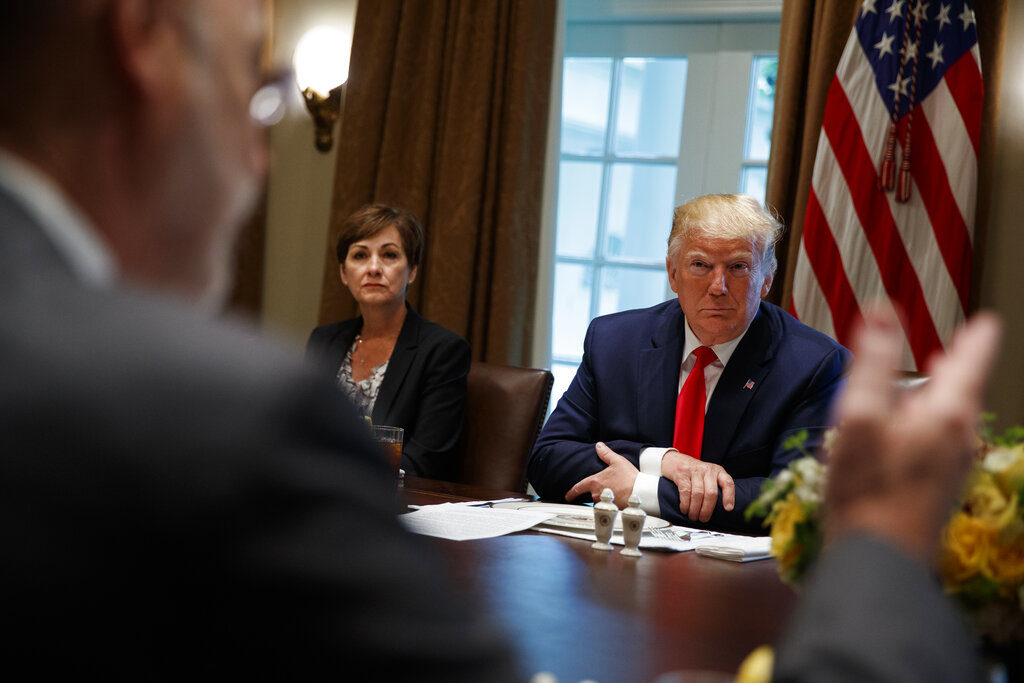
President Donald Trump shifted gears Friday on election interference, saying “of course” he would go to the FBI or the attorney general if a foreign power offered him dirt about an opponent. Trump’s new stance was a walk back — to a degree — after he set off a Washington firestorm earlier in the week by asserting he would not necessarily contact law enforcement if offered damaging material from an overseas source. But in his latest comments, the president still said he would look at the proffered information to see whether it was “incorrect.” “Of course, you have to look at it,” Trump said during a birthday appearance on “Fox and Friends.” He added: “But of course, you give it to the FBI or report it to the attorney general or somebody like that. You couldn’t have that happen with our country, and everybody understands that.” That was a step back from his comments to ABC days earlier. “OK, let’s put yourself in a position: You’re a congressman, somebody comes up and says, ‘Hey I have information on your opponent.’ Do you call the FBI? You don’t,” Trump said in an interview that aired Wednesday. “I’ll tell you what. I’ve seen a lot of things over my life. I don’t think in my whole life I’ve ever called the FBI.” His assertion that he would be open to accepting a foreign power’s help in his 2020 campaign alarmed Democrats, who condemned it as a call for further election interference while Republicans struggled to defend his comments. Asked by ABC News what he would do if Russia or another country offered him dirt on his election opponent, Trump said: “I think I’d want to hear it.” He added that he’d have no obligation to call the FBI. “There’s nothing wrong with listening.” Special counsel Robert Mueller painstakingly documented Russian efforts to boost Trump’s campaign and undermine that of his Democratic rival, Hillary Clinton. In a segment released Friday from the president’s interview earlier this week, Trump told ABC that “it doesn’t matter” what former White House counsel Don McGahn told investigators and that McGahn may have been confused when he told prosecutors he had been instructed to seek Mueller’s removal. McGahn was a crucial witness for Mueller, spending hours with investigators and offering detailed statements about episodes central to the special counsel’s investigation into possible obstruction of justice. McGahn described how Trump directed him to press the Justice Department for Mueller to be fired by insisting that he raise what the president perceived as the special counsel’s conflicts of interest. Trump denied that account, saying, “The story on that very simply, No. 1, I was never going to fire Mueller. I never suggested firing Mueller.” Asked why McGahn would have lied, Trump said, “Because he wanted to make himself look like a good lawyer. Or he believed it because I would constantly tell anybody that would listen — including you, including the media — that Robert Mueller was conflicted. Robert Mueller had a total conflict of interest.” Though Trump tried to cast doubt on McGahn’s credibility, it is clear from the Mueller report that investigators took seriously his statements, which in many instances were accompanied by contemporaneous notes, and relied on his account to paint a portrait of the president’s conduct. It is also doubtful that McGahn, a lawyer, would have had any incentive to make a misstatement given that lying to law enforcement is a crime and Mueller’s team charged multiple Trump aides with making false statements. Though Mueller’s investigation didn’t establish a criminal conspiracy between Russia and the president’s campaign, Trump repeatedly praised WikiLeaks in 2016 and at one point implored hackers to dig up dirt on Hillary Clinton, The role of Trump’s eldest son, Donald Trump Jr., in organizing a 2016 meeting with a Russian lawyer offering negative information on Clinton was a focus of Mueller’s probe of Russian meddling in the last presidential campaign. Trump Jr. spoke with the Senate Intelligence Committee for about three hours Wednesday to clarify an earlier interview with the committee’s staff. By Jonathan Lemire and Zeke Miller Associated Press. Lemire reported from New York. Republished with the permission of the Associated Press.
House committee subpeoneas Michael Flynn, Rick Gates in Russia probe
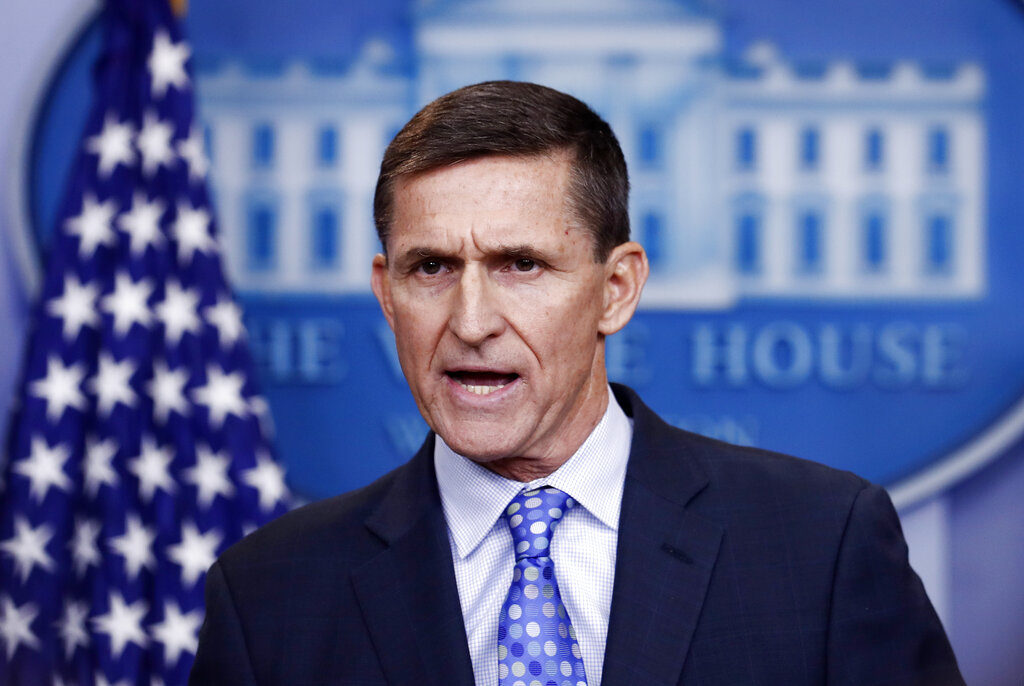
The House Intelligence Committee has subpoenaed former White House national security adviser Michael Flynn and former Trump campaign aide Rick Gates as part of its investigation into Russian interference in the 2016 U.S. presidential election. Committee Chairman Adam Schiff said Thursday the committee is examining “deep counterintelligence concerns” raised in special counsel Robert Mueller’s report and “requires speaking directly” with Flynn and Gates, who were important witnesses for Mueller’s investigation. “The American people, and the Congress, deserve to hear directly from these two critical witnesses,” the California Democrat said in a statement. “We hope these witnesses come to recognize their cooperation as being with the United States, not merely the Department of Justice.” The subpoena seeks documents and testimony from both men. Letters sent to their lawyers request that records be produced by June 26 and that they testify before the committee on July 10. Flynn admitted lying to the FBI about his conversations with the Russian ambassador to the United States and awaits sentencing. He was supposed to have been sentenced last December, but midway through the hearing abruptly asked for it to be postponed so that he could continue cooperating with the Justice Department and earn additional credit toward a reduced sentence. Schiff told reporters Thursday that “there are a whole host of issues that we want the opportunity to discuss.” “We have not had that opportunity over the past couple of years because of their involvement in their own cases and now potentially … in the cases involving others,” he added. Schiff told reporters the committee is interested in Flynn’s discussions with former ambassador Sergey Kislyak about sanctions imposed on Russia as well as his involvement in foreign business deals. Asked if he thought Flynn and Gates would appear, Schiff said, “I would hope that they would consider it valuable as a part of their cooperation, to show the court that they are doing everything that they can to assist the United States government, that they will also assist the Congress.” Flynn’s attorney, Sidney Powell, said in an email to The Associated Press, “The General is continuing to cooperate with the government,” but she declined to comment on the subpoena. Gates’ lawyer did not immediately return an email message about the subpoena. Powell, a former federal prosecutor who has been an outspoken critic of Mueller’s investigation, was recently hired by Flynn after he fired his previous lawyers. The change may herald a shift in Flynn’s legal strategy in the final stages of his case. Gates pleaded guilty to conspiracy and false statement charges related to Ukrainian lobbying and political consulting he did with ex-Trump campaign chairman Paul Manafort, who’s been sentenced to more than seven years in prison. Associated Press writer Susannah George contributed to this report. Republished with the permission of the Associated Press.
Donald Trump Jr. on Capitol Hill for closed-door Senate interview
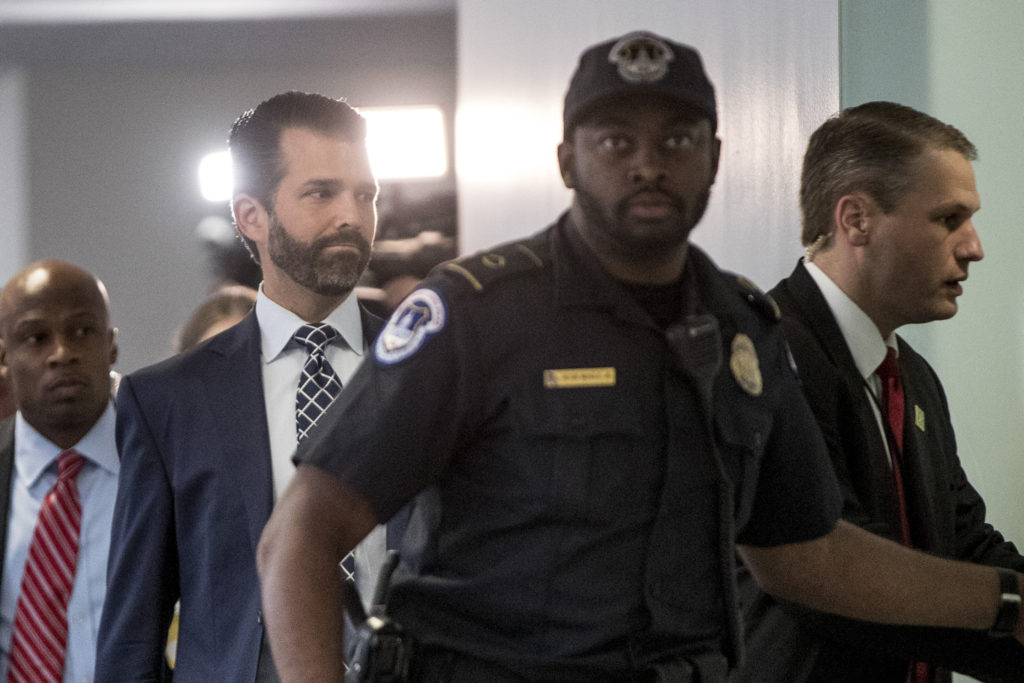
President Donald Trump’s eldest son told reporters he has “nothing to correct” as he arrived on Capitol Hill Wednesday for a second closed-door interview with the Senate intelligence committee. Donald Trump Jr. made the brief comments in response to a reporter who asked if he had come to correct his testimony. Senators want to discuss answers Trump Jr. gave the panel’s staff in a 2017 interview, as well as answers he gave to the Senate Judiciary Committee in a separate interview behind closed doors that year. He is appearing in response to a subpoena from the panel’s Republican chairman, North Carolina Sen. Richard Burr. President Trump’s former lawyer, Michael Cohen , told a House committee in February that he had briefed Trump Jr. approximately 10 times about a plan to build a Trump Tower in Moscow before the presidential election. But Trump Jr. told the Judiciary panel he was only “peripherally aware” of the real estate proposal. The panel is interested in talking to Trump Jr. about other topics as well, including a campaign meeting in Trump Tower with a Russian lawyer that captured the interest of special counsel Robert Mueller. Emails leading up to the meeting promised dirt on Democrat Hillary Clinton, Trump’s opponent. Mueller’s report, released in April, examined the meeting but found insufficient evidence to charge anyone with a crime. Trump Jr.’s testimony comes as the intelligence panel continues its two-year investigation of Russian interference in the 2016 election. Some Republicans are becoming restless with the topic, and Burr received considerable blowback from colleagues over the subpoena. But he told fellow senators that Trump Jr. had backed out of an interview twice, forcing the committee to act. The president said in May he believed that his son was being treated poorly.“It’s really a tough situation because my son spent, I guess, over 20 hours testifying about something that Mueller said was 100 percent OK and now they want him to testify again,” Trump told reporters at the White House. “I don’t know why. I have no idea why. But it seems very unfair to me.” It was the first known subpoena of a member of the president’s immediate family, and some Republicans went so far as to suggest Trump Jr. shouldn’t comply. Burr’s home state colleague, Sen. Thom Tillis, Republican-North Carolina, tweeted, “It’s time to move on & start focusing on issues that matter to Americans.” Sen. John Cornyn of Texas, a GOP member of the panel, said he understood Trump Jr.’s frustration. Cornyn’s Texas colleague, Republican Sen. Ted Cruz, said there was “no need” for the subpoena. Senate Majority Leader Mitch McConnell has defended Burr, saying “none of us tell Chairman Burr how to run his committee.” Still, McConnell made it clear that he is eager to be finished with the probe, which has now gone on for more than two years. It’s uncertain when the intelligence panel will issue a final report. Burr told The Associated Press last month that he hopes to be finished with the investigation by the end of the year. By Mary Clare Jalonick and Padmananda Rama Associated Press Republished with the permission of the Associated Press.
FBI chief: No evidence of illegal spying on Donald Trump campaign

WASHINGTON (AP) — FBI Director Chris Wray said Tuesday that he does not consider court-approved FBI surveillance to be “spying” and said he has no evidence the FBI illegally monitored President Donald Trump’s campaign during the 2016 election. His comments at a Senate Appropriations subcommittee hearing broke from Attorney General William Barr, who has described as “spying” FBI surveillance during its investigation into potential collusion between the Trump campaign and Russia. Barr has not said such surveillance was necessarily improper, but Trump nonetheless seized on those comments to suggest his campaign was spied on in an illegal and unprecedented act. Asked by Sen. Jeanne Shaheen, Democrat-New Hampshire, if he would say that the FBI is “spying” when it investigates suspected terrorists and mobsters while following “investigative policies and procedures,” Wray replied, “Well, that’s not the term I would use.” He added: “I believe that the FBI is engaged in investigative activity, and part of investigative activity includes surveillance activity of different shapes and sizes. And to me, the key question is making sure that it’s done by the book, consistent with our lawful authorities. That’s the key question. Different people use different colloquial phrases.” Wray declined to discuss in detail the FBI’s investigation into the Trump campaign because of an ongoing Justice Department inspector general probe into the origins of the Russia inquiry. Barr has said he expects the watchdog report to be done in May or June. But asked whether he was aware of evidence that the FBI had illegally spied on the Trump campaign, Wray said, “I don’t think I personally have any evidence of that sort.” Barr is investigating whether there was a proper basis for the FBI to open a counterintelligence investigation into ties between the Trump campaign and Russia. The recently concluded investigation from Special Counsel Robert Mueller did not find a criminal conspiracy between the campaign and the Kremlin to tip the outcome of the 2016 presidential election. “The attorney general is seeking to understand better the circumstances at the department and the FBI relating to how this investigation started, and we’re working to help him get that understanding,” Wray said about the Justice Department’s review. “I think that’s part of his job and part of mine.” Barr didn’t specify what he meant when he said he believed there had been spying on the Trump campaign, though he also said that he did not mean the word in a negative way. At a hearing last week, he described “spying” as a “good English word” encompassing “all forms of covert intelligence operations” and said he wouldn’t back away from using it. The FBI obtained a secret surveillance warrant in 2016 to monitor the communications of former Trump campaign aide Carter Page, whose interactions with Russia had raised law enforcement suspicions even before he joined the campaign. The New York Times reported last week that the FBI used a woman posing as a research assistant to approach ex-Trump campaign adviser George Papadopoulos, who was told by a Maltese professor in the spring of 2016 that Russia had “dirt” on Democrat Hillary Clinton in the form of stolen emails. In his book about his entanglement in the Russia probe, “Deep State Target,” Papadopoulos wrote that the woman, who identified herself as Azra Turk, asked him about his work with the Trump campaign. “She wants to know: Are we working with Russia?” he wrote. He described her question as “creepy” and said he told her he had “nothing to do with Russia.” Papadopoulos later pleaded guilty to lying to the FBI about his interactions with the professor, Joseph Mifsud.


